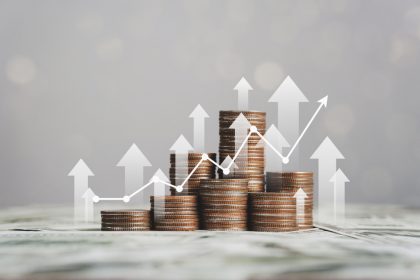Credit cards can be an incredibly useful financial tool when used responsibly. They offer convenience, security, and sometimes rewards that can help you save on purchases. However, the ease of access to credit can also lead to financial pitfalls if not managed wisely. Learning how to manage and use your credit card effectively can save you from debt, high interest rates, and long-term financial stress.
What are smart ways to handle your credit card so that it works for you and not against you? By following these strategies, you’ll be able to leverage your credit card as a tool for financial success rather than a burden.
1. Understand your credit card terms
Before you even begin using your credit card, it is essential to fully understand the terms and conditions. These terms will give you a clear idea of the interest rates, fees, and other costs associated with your card.
Key points to consider:
- Interest rates: Know what your annual percentage rate (APR) is. If you carry a balance, this will affect how much you pay in interest over time.
- Credit limit: Stay aware of your credit limit and try not to max it out. It’s better to keep your balance low in comparison to your limit.
- Fees: Be aware of late payment fees, cash advance fees, and any other hidden charges that could add to your debt.
Understanding these details will help you avoid unwanted surprises and make informed decisions about your spending.
2. Always pay more than the minimum
Paying the minimum amount due each month may seem convenient, but it’s one of the fastest ways to accumulate debt. The minimum payment is often just a fraction of your total balance, and paying only this amount will extend the time it takes to clear your debt.
Why paying more helps:
- Avoiding interest accumulation: By paying more than the minimum, you reduce the principal amount, which in turn reduces the interest charged.
- Faster debt repayment: Making larger payments allows you to pay off your balance more quickly, saving you money in the long run.
- Better credit score: Credit utilization (the percentage of your credit limit you’re using) impacts your credit score. By reducing your balance, you improve this ratio.
To effectively manage your credit, aim to pay off the full balance every month. If that’s not possible, at least pay more than the minimum to prevent interest charges from ballooning.
3. Track your spending
One of the major benefits of using a credit card is the ease of tracking your purchases. Most credit card companies provide detailed statements, which can help you monitor your spending patterns. This is a great way to ensure you are sticking to a budget and not overspending.
Steps for better tracking:
- Use apps: Many credit card companies have mobile apps that allow you to check your spending in real-time.
- Set alerts: Set up spending alerts to notify you when you’ve reached a certain threshold. This helps to prevent overspending.
- Create a budget: Use your credit card statement to create a budget and keep your spending in line with your financial goals.
By tracking your spending, you’ll gain control over your finances and be less likely to make impulsive purchases.
4. Maximize rewards and benefits
If your credit card offers rewards, cashback, or points, it’s wise to take advantage of them. However, don’t let the allure of rewards tempt you into spending more than you can afford. Use these perks strategically.
Tips for maximizing rewards:
- Choose the right card: If you’re going to use a rewards card, choose one that offers benefits that align with your spending habits. For example, some cards offer better rewards for travel, groceries, or gas.
- Pay off the balance: Rewards aren’t beneficial if you’re accumulating interest on the purchases. Always pay off the balance to truly benefit from the rewards.
- Watch for promotions: Keep an eye out for promotional periods that offer higher rewards or bonus points on specific types of purchases.
Effectively managing these perks can result in meaningful savings, but they only benefit you if you’re not accumulating interest.
5. Keep your credit utilization low
Your credit utilization ratio is a significant factor in determining your credit score. This ratio is the amount of credit you are using compared to your total available credit. The lower your credit utilization, the better it is for your credit score.
Best practices for credit utilization:
- Stay below 30%: A good rule of thumb is to use no more than 30% of your credit limit. For example, if your limit is $1,000, try not to carry a balance of more than $300.
- Pay off balances frequently: Consider making multiple payments throughout the month to keep your balance low, especially before your billing cycle ends.
- Request a credit limit increase: If you can manage it responsibly, requesting a credit limit increase can lower your credit utilization ratio and improve your credit score.
Maintaining a low credit utilization rate shows lenders that you’re responsible with your credit, which can help you secure loans or better credit terms in the future.
6. Avoid impulse purchases
Credit cards can sometimes feel like free money because you’re not handing over cash. This detachment can lead to impulse spending, which can quickly spiral into unmanageable debt.
How to curb impulse spending:
- Wait before buying: If you’re tempted to make an impulse purchase, wait 24 hours. This gives you time to consider whether you really need the item.
- Set spending limits: If you find it hard to control impulse spending, set a personal spending limit that you don’t exceed without careful thought.
- Use credit for essentials: Stick to using your credit card for necessary purchases, such as groceries, gas, and bills, to avoid impulse buying.
7. Monitor your credit score
Your credit score is a reflection of how well you manage your credit. By regularly checking your credit score, you can stay on top of your financial health and spot potential issues early.
Why monitoring your credit is important:
- Identify errors: Regular checks allow you to spot any errors or discrepancies that could negatively affect your credit score.
- Detect fraud: Monitoring your credit can help you identify unauthorized activities and protect against identity theft.
- Improve your score: By understanding what affects your score, you can make strategic decisions to improve it over time.
Most credit card issuers offer free credit score tracking, so take advantage of this tool to stay informed about your financial standing.
8. Be cautious with balance transfers
Balance transfers can be an effective way to consolidate debt or reduce interest payments. However, they are not without risk, and you should proceed with caution.
Things to consider with balance transfers:
- Understand the terms: While balance transfers often come with low introductory rates, these rates typically expire after a set period, and the interest rate may rise significantly afterward.
- Transfer fees: Most balance transfers come with a fee, usually around 3% of the amount transferred. Make sure the fee doesn’t negate the benefits of the lower interest rate.
- Stick to a plan: A balance transfer can help you pay off debt faster, but only if you have a plan in place to manage your payments.
Balance transfers can be a smart financial move, but they require careful management to avoid falling into deeper debt.
This story was created using AI technology.














